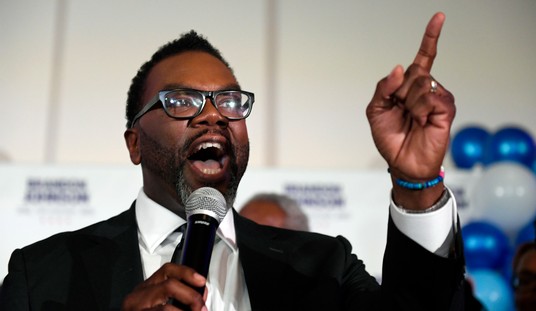The whole point of free speech is that it allows people to express any political or social position, including what any one of us considers “hate speech.” And “hate speech” now means “any position the left differs with.” —Dennis Prager, “The Left Ruins Everything”
I’ve had occasion to discuss the mordant travesty now before the Canadian parliament known as Bill C-63, or the “Online Harms Act.” The Bill represents so serious a threat to the freedom and sovereignty of the Canadian people that it merits stringent reconsideration before its third and final reading in the Commons. The Act, proposed by Justin Trudeau’s Justice Minister Arif Virani and supported by various activists, media personnel, and assorted officials, has been endorsed by the presumably impartial Governor General Mary Simon, an Inuk leader and the first Indigenous person to hold Canada’s viceregal position.
No opposition members were invited to participate in the closed meeting, held at Rideau Hall, the Governor General’s residence, on April 15. According to the Toronto Sun, Simon’s guest list was limited to Attorney General Arif Virani and supporters of the Bill, and points out that the Governor General, who hosted the symposium, is supposed to be “non-partisan and apolitical.” Simon’s office alluded to the need “to explore solutions and create allyship and networks of resilience” in support of “internet regulation,” a candied way of referring to C-63. “Let’s transform these conversations into action,” Simon posted on X.
Simon has no business meddling in the preparation and boosting of impending legislation. Jamie Sarkonak in the National Post explains that the Governor General’s authority “is not to be used for political ends—for promoting contentious Liberal bills.” Similarly, Jennifer Cowan at The Epoch Times mentions that Simon’s participation is “raising questions from pundits about Ms. Simon’s ‘impartiality.’”
The Liberal government clearly has every intention of ramming the new piece of legislation through Parliament with as little publicity as possible and with no public accountability. It is most disturbing that few Canadians, owing to media dissimulation on the one hand and citizen dormancy on the other, seem to understand what awaits them. The Bill, in its way, is a dark and secretive putsch by the government against its own democratic state.
If Bill C-63 passes the House and is ratified by the Senate, Canada would no longer be a country any sensible and freedom-loving individual would consider worth living in. The Bill would remove any semblance of democratic governance founded on a set of basic and recognized principles: freedom of expression, assembly, and religion; mobility rights; property rights; a fair and responsible press; the rule of law; citizen participation; regular elections; and habeas corpus. The democratic citizen will have become a political subject utterly dependent on the favor of the government, which will in turn have become the sole arbiter of both truth and consequence. It will have created a network of informers whose damaging but unverified accusations will surely be treated as gospel. Even the concept of “rights” would no longer have any meaning or material content.
These are weighty issues. What, then, does Bill C-63 consist of?
The Bill purportedly aims to reduce online “hate” and “hate speech,” terms that are devoid of any clear distinction and can be made to mean anything the government and its appointed commissioners want them to mean. Realistically put, any form of speech that is critical of the current government and its representatives or is seen to violate the tenets of political correctness or that can be smutched as “disinformation” or “racism” will be considered as criminal. Penalties range from termination of an offender’s media address, fines of up to $70,000, and jail sentences for presumed “defendants” that can culminate in imprisonment for life. Bill C-63 is nothing less than a censorship law closely reminiscent of the justice apparatus in authoritarian states like China and North Korea.
The Bill is disguised under the shoehorn pretext of protecting children from online pornography, an obvious lie when one considers that lewd public displays called Pride parades, sexually explicit education for minors, and gender transition surgery are all legally permissible and even encouraged. C-63 is nothing less than a piece of blatant totalitarian legislation slipping surreptitiously into the realms of ordinance and usage.
Bill C-63 entails the following principal measures:
- It creates a new multi-mantled bureaucracy comprising a Digital Safety Commission, a Digital Safety Ombudsperson, and a Digital Safety Office to monitor ostensible offences like “hate speech,” and to enforce speech codes on internet platforms. The layers of bureaucracy are plainly impermeable to access, reason, or fairness.
- It expands the Criminal Code to include ambiguous phrases like “incites violent extremism or terrorism” and “foments hatred,” protean and impalpable locutions that enable punitive state action. Practically anything can be interpreted to “foment hatred” if a person so determines and if the government concurs. Anti-abortionists, critics of the trans perversion, pro-family advocates, Christians citing scripture in public places, and legitimate protests like that of the celebrated Trucker Convoy and their supporters would also be targeted.
- It extends the jurisdiction of the nefarious Canadian Human Rights Commission to censor online content and expressions of opinion and to recommend prosecution of offenders with prohibitive fines and jail sentences, including in certain cases a life term behind bars. A false step, a misspoken word, a dubious association, an utterance that can be read as genocidal are enough to destroy one’s life.
- Courts are empowered to receive and adjudicate anonymous claims or reports of “hate crimes.” The floodgates of a Total Unaddressable Market of complaints would be opened. We are witnessing the film "Minority Report" with its “PreCrime Police” and visionary “PreCogs” actualized in a Western democracy. In a May 8 post, Elon Musk rightly criticized the proposed Online Harms Act as “a terrible attack on the rights of Canadians to speak freely,” entailing penalties a judge may impose, as The Epoch Times reports, “if the court believes the person may commit a future hate crime.”
This is a very bizarre piece of legislation, to put it mildly. One can be indicted for something one might have said or an act or statement that others fear one might commit or say in the future. Thus, one may be accused and punished for a thought or an act that “exists” only in the conditional mood or in a modal universe, which is to say, a thought or an act that has no concrete or observable reality.
One can’t help thinking of Franz Kafka’s premonitory novel "The Trial," whose protagonist is arrested and eventually executed for a crime he has no knowledge of having committed and which was never specified in the first place. Moreover, our courts would also be empowered to criminalize retrospective commentary judged to be “hateful.” Something one may have said or written some years ago and has forgotten, or has since changed one’s mind about, is now actionable. One is now liable for the obscure past or the possible future.
To return to the Governor General. As CitizenGo comments, the Rideau gathering “alarmingly brings Governor General Simon's ability to remain ‘nonpartisan’ in her role as Governor General into question.” This is extremely worrisome. Her participation in facilitating so egregious and grossly undemocratic a measure as Bill C-63 effectively disqualifies her in her official capacity and reveals how far the Liberals are prepared to go to bend the rules in pursuing their purpose.
Canada is a constitutional monarchy. The duties of the Governor General as the Crown’s representative are constitutional and ceremonial. In the official parlance, the GG upholds the traditions of Parliament and other democratic institutions. The current holder of the office has no brief for engaging in the formulation of public policy. The fact that she has done so pre-debate and out of turn, in effect overstepping her office, shows she has become not an honorary appointee but a political apparatchik, a testament to the Liberal government’s authoritarian intention to mobilize all its resources, legitimate or not, in order to transform a Western democracy into a Third World tyranny. The Prime Minister, the Justice Minister, and the Governor General are cozily in bed together, a political threesome that augurs poorly for the country’s future prospects.
The generic left, of course, has parlayed its bets for this fundamentally inhibitory Act and is confident of winning. Notable leftist commentator Andrew Sullivan, for example, argues that “the people who drafted this legislation made a concerted effort to understand what unintended consequences could come from regulations for the wider Internet (and especially private communications)” and hopes “that other governments will look at the Canadian example.” His avowal is complete nonsense. It is sometimes hard to tell whether mendacity or myopia is at work in such ludicrous arguments. Nonetheless, the motivated ignorance and special pleading evident in contestations like Sullivan’s are almost beyond belief — but then, state control and ideological compulsion have always been the trademarks of socialist and communist theory and practice.
Canada’s citizens may be in for a brutal surprise. And Canada’s ruling elite would be right at home in Pyongyang.










Join the conversation as a VIP Member